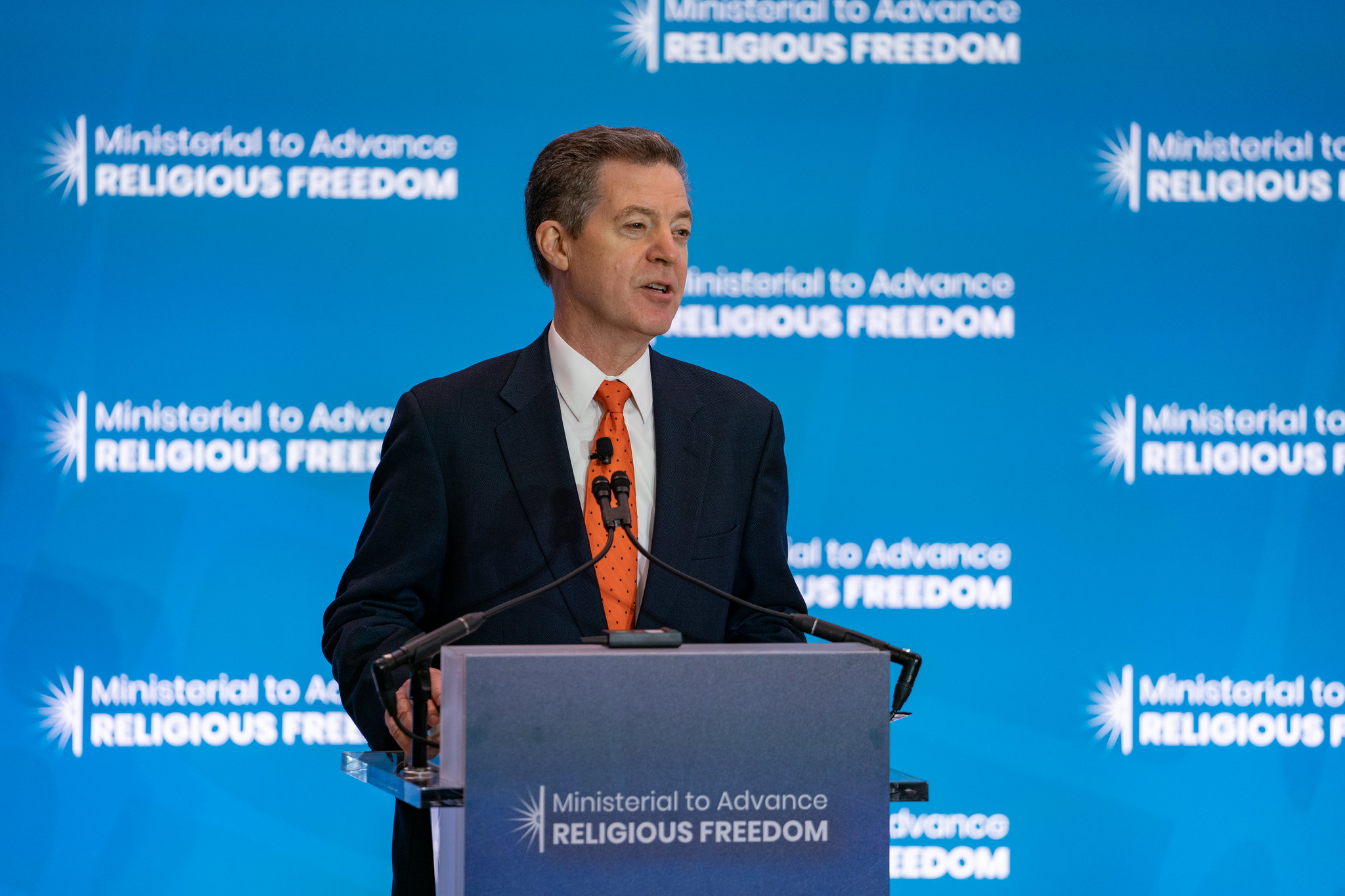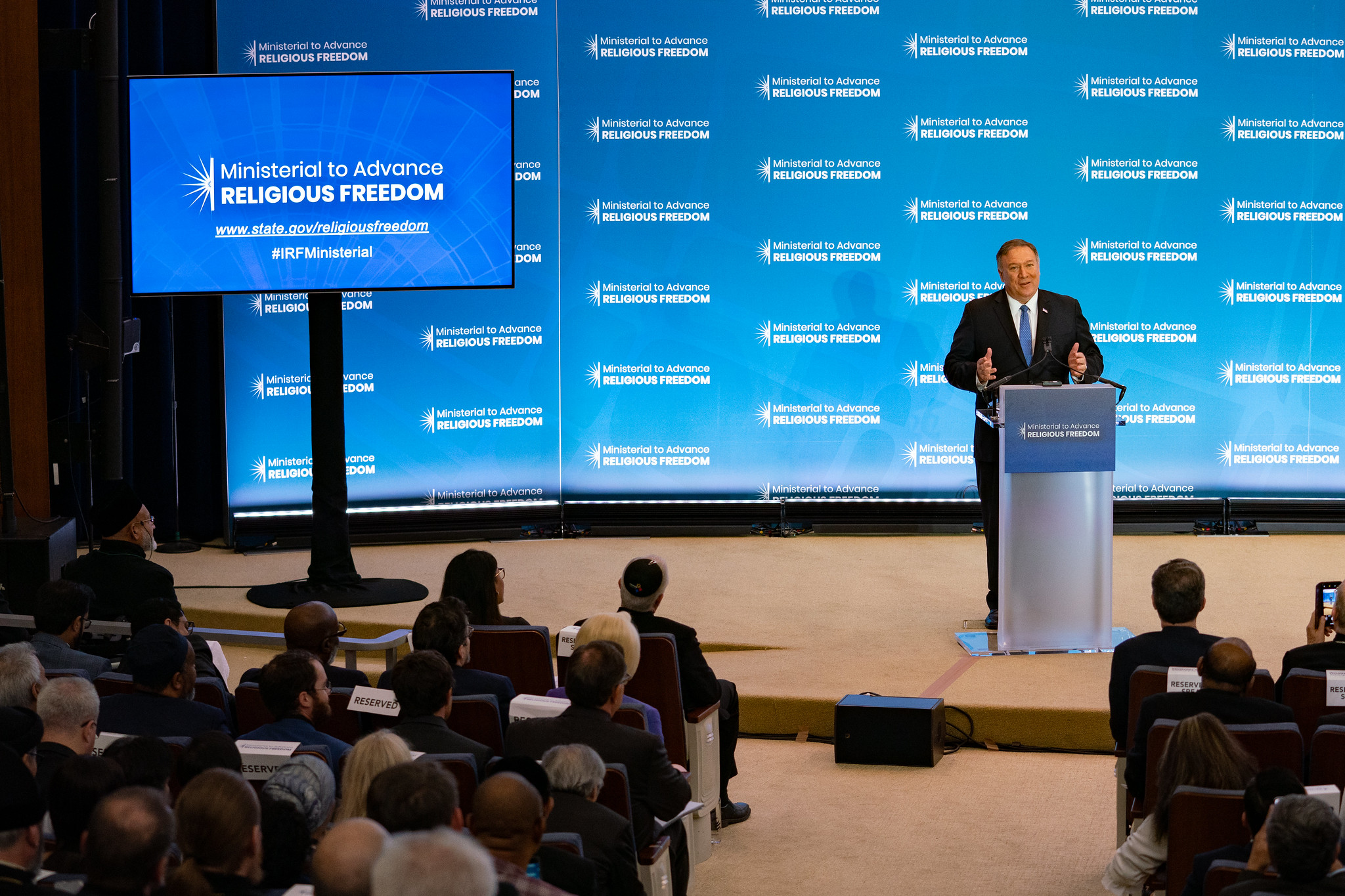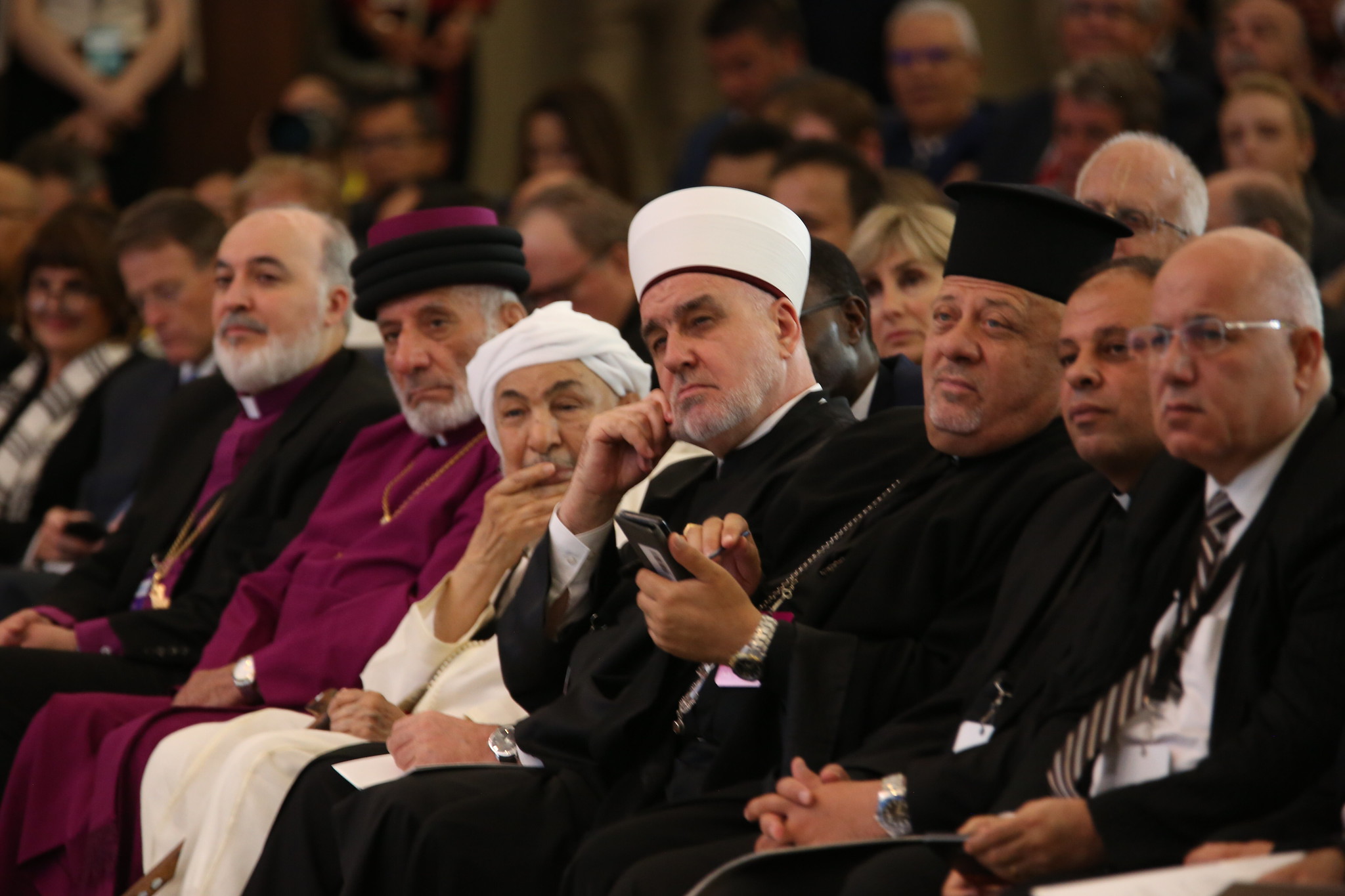
WASHINGTON (BP) — Described as the largest religious freedom event in world history, the second Ministerial to Advance Religious Freedom demonstrated a growth in support for the cause even as advocates received a reminder of its grave need.
 The U.S. State Department convened its second Ministerial to Advance Religious Freedom July 16-18 in Washington, D.C., a year after sponsoring the inaugural event to combat persecution of and discrimination against people of all faiths. Delegations attended from 106 foreign governments — an increase of more than 20 from 2018 — and representatives from nearly 900 religious or civil society groups — an increase of hundreds, according to the State Department.
The U.S. State Department convened its second Ministerial to Advance Religious Freedom July 16-18 in Washington, D.C., a year after sponsoring the inaugural event to combat persecution of and discrimination against people of all faiths. Delegations attended from 106 foreign governments — an increase of more than 20 from 2018 — and representatives from nearly 900 religious or civil society groups — an increase of hundreds, according to the State Department.
Numerous survivors of persecution or terrorist attacks because of their religious beliefs spoke during the event, which began a day after a new study showed an increase in restrictions on and hostilities toward religion.
A Pew Research Center report issued July 15 showed “high” or “very high” restrictions on religion by 52 governments, an increase of 12 in the decade covered from 2007 to 2017. It also found the countries with the highest levels of social hostilities involving religion grew from 39 to 56 in the same period.
The Southern Baptist Ethics & Religious Liberty Commission (ERLC) participated in the ministerial and hosted one of the dozens of side events that accompanied the official State Department meetings.
The ministerial “demonstrates the commitment of the United States to lead on the issue of international religious liberty,” said ERLC Executive Vice President Phillip Bethancourt, who was in attendance.
“While it was significant to hear from experts in the field and leaders around the globe, the most powerful moments came from the testimonies of those who had endured unspeakable hardships for simply living out their faith — survivors from shootings at places of worship, Uighur women who had escaped oppression from the Chinese government and missionaries to North Korea who suffered in prison camps,” Bethancourt told Baptist Press in written comments. “The strength of the ministerial was the combination of facts and faces that humanized the issue and galvanized the participants for further action.”
 The ERLC hosted a Capitol Hill event July 18 on North Korea that featured an interview with an escapee from North Korea, a panel discussion and the premiere of a documentary film on persecution under the horribly repressive regime.
The ERLC hosted a Capitol Hill event July 18 on North Korea that featured an interview with an escapee from North Korea, a panel discussion and the premiere of a documentary film on persecution under the horribly repressive regime.
In his keynote address July 18, Secretary of State Mike Pompeo told attendees the growth in the ministerial “proves that religious freedom matters to literally billions of people all around the world. Look around you. Religious freedom isn’t just a Christian concern, a Jewish concern, a Muslim concern, a Buddhist concern, a Hindu concern, or a humanist concern. It’s all of our concern; it is everyone’s concern.
“We are committed, and we are united,” Pompeo said, “and our voices are growing stronger and stronger. And this is, indeed, just the beginning.”
Sam Brownback — ambassador at large for international religious freedom — said in the opening session July 16, “A global human rights movement centered on religious freedom is being launched from this meeting. This right extends to all, everywhere, all the time. It is a God-given right governments must protect if their people are to prosper.
“This is not an exercise here in trying to achieve some sort of common theology. This is an exercise to protect a common human right. Let’s determine to fight for each other’s God-given right to religious freedom,” said Brownback, who described the ministerial as not only the largest religious freedom event in history but the largest human rights event ever hosted at the State Department.
Vice President Mike Pence told survivors of persecution in the audience July 18, “The American people are with you. The people of the United States are inspired by your testimony and by your strength. And it steels our resolve to stand for religious liberty in the years ahead.
“And we will always stand with people across the world who take a stand for their faith.”
 The ministerials in 2018 and 2019 have helped demonstrate the ongoing attention the United States has given to global religious liberty since the late 1990s. In 1998, Congress and President Clinton enacted the International Religious Freedom Act, which established the ambassador at large and Office on International Religious Freedom in the State Department. It also created the bipartisan U.S. Commission on International Religious Freedom, which tracks the status of religious liberty worldwide and issues reports to Congress, the president and the State Department.
The ministerials in 2018 and 2019 have helped demonstrate the ongoing attention the United States has given to global religious liberty since the late 1990s. In 1998, Congress and President Clinton enacted the International Religious Freedom Act, which established the ambassador at large and Office on International Religious Freedom in the State Department. It also created the bipartisan U.S. Commission on International Religious Freedom, which tracks the status of religious liberty worldwide and issues reports to Congress, the president and the State Department.
In his speech, Pence reported on two initiatives announced at last year’s ministerial: 1) The United States has given through the Genocide Recovery and Persecution Response Program more than $340 million in aid to religious and ethnic minority communities persecuted by ISIS in Iraq and elsewhere in the region and 2) the International Religious Freedom Fund has received nearly $5 million in pledges and helped more than 1,800 victims of persecution.
In other news during the ministerial:
— Statements of Concern were issued on six issues – including blasphemy/apostasy laws, protecting places of worship and the use of technology regarding religious freedom — and three countries — Burma, China and Iran. Last year’s ministerial also released statements of concern on the same countries. Only two governments joined the United States in the statement on China.
— Follow-up conferences were announced in Albania, Bangladesh, Colombia, the Marshall Islands, Morocco and the Vatican.
— The first religious freedom awards went to people from Brazil, Cyprus, Iraq, Nigeria and Sudan.
On July 16, the State Department announced a ban on travel to the United States for four Burmese military leaders as a result of severe human rights violations during the ethnic cleansing of Rohingya Muslims. Their families also are prohibited from entry into this country.
The Cuban government prohibited at least four Christian leaders in the communist country from traveling to Washington, D.C., for the ministerial.
















